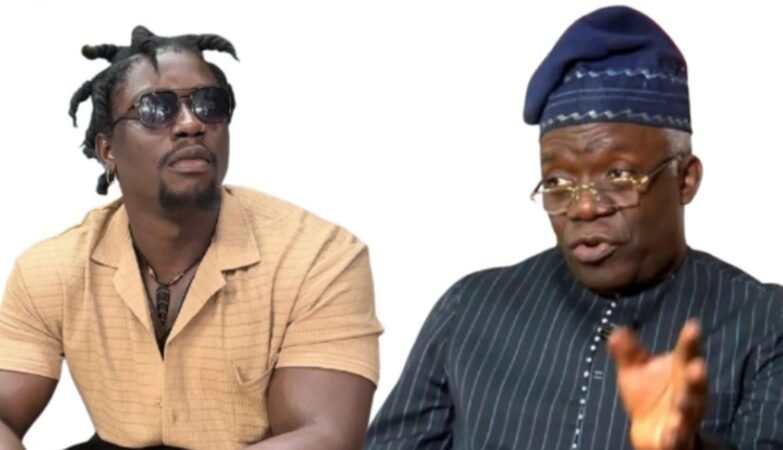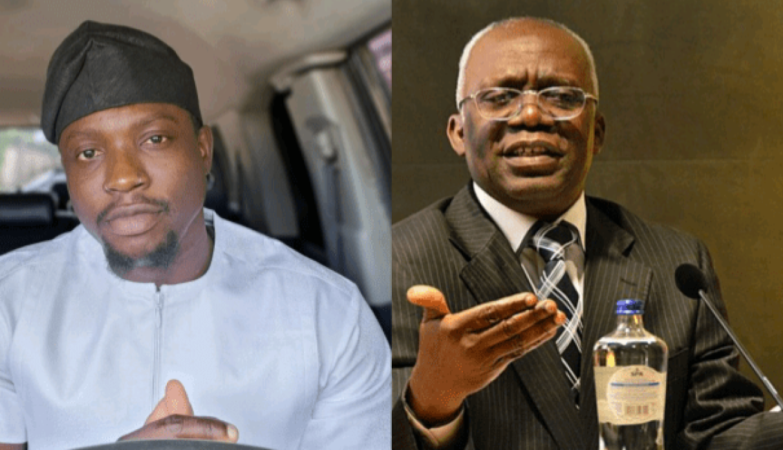Dirisu Yakubu
Nigerians’ spending on foreign education, healthcare and personal travels gulped over $98bn in 10 years, according to the Central Bank of Nigeria data.
The CBN Governor, Olayemi Cardoso, who made the disclosure while addressing the House of Representatives on Tuesday, was responding to an inquiry by the lawmakers on the factors behind the rapid depreciation of the naira in the last few weeks.
He spoke against the backdrop of the central bank’s battle to stabilise the exchange rate amid dollar shortage.
The lawmakers had invited Cardoso and other economic managers following last week’s plunge of the naira from about 900/dollar to over 1,400/dollar at the official market.
Members of the organised private sector and Nigerians have raised concerns over development, saying it would lead to more hardships and job losses.
However, speaking with the lawmakers, Cardoso argued that the foreign exchange market was facing increased demand pressures, causing a continuous decline in the value of the naira.
According to him, factors contributing to this situation include speculative forex demand, inadequate forex due to low remittance of crude oil earnings to the CBN, increased capital outflows, and excess liquidity from fiscal activities.
To address exchange rate volatility, he said a comprehensive strategy had been initiated to enhance liquidity in the FX markets.
This includes unifying FX market segments, clearing outstanding FX obligations, introducing new operational mechanisms for Bureau De Change operators, enforcing the Net Open Position limit for commercial banks, and adjusting the remunerable Standing Deposit Facility cap.
Cardoso revealed that between 201O and 2020, foreign education expenses amounted to a substantial $28.65bn, as per the CBN’S publicly available Balance of Payments Statistics.
Similarly, medical treatment abroad incurred around $11.01bn in costs during the same period. Within the same period, Personal Travel Allowances accounted for a total of $58.7bn.
Cumulatively, Nigerians spent about $98bn on foreign trips, medical tourism and overseas education, a figure the CBN governor said was more than the total foreign exchange reserves of the central bank.
Further compounding the situation, according to Cardoso has been the consistent decline in Nigeria’s export earnings against the backdrop of increasing imports.
In contextualising the problem, Cardoso pointed out that Nigeria’s annual imports, which require dollars for payment, amounted to $16.65bn in 1980.
By 2014, the annual imports had significantly surged to $67.05bn, although it gradually decreased to $54.71bn as of last year.
Similarly, food imports escalated from $2.63bn in 1980 to $14.84bn in 2019.
Cardoso said, “In 1980, our import expenditure stood at $16.65bn, while our exports amounted to $25.97bn, resulting in a surplus of $9.32bn. Thus, during that year, we managed to fulfil the demand for dollars from our existing supply and still had over $9bn in surplus. In such a situation, the exchange rate (the value of the US Dollar) would not increase because, similar to any commodity, its supply surpassed its demand.”
Also contributing to the free fall of the naira, per the apex bank, has been a significant decline in Nigeria’s oil revenues.
“Moreover, from 2003 to 2013, we experienced a surplus of $331.73bn in the economy, with oil exports alone contributing over $798bn. This surplus of dollars would typically stabilize the exchange rate, leading to a “strong” naira.
“ Regrettably, over the past 12 years, oil exports, constituting over 90 per cent of our foreign exchange earnings, have declined from $93.89bn in 2011 to US$31.4bn in 2020,” Cardoso added, while noting that monetary policy actions were sometimes inhibited by transmission lags.
“It also seems that the task of stabilising the exchange rate, while an official mandate of the CBN, would necessitate efforts beyond the bank itself and indeed to an attitudinal change of all our citizens,” he added.
Cardoso expressed optimism that that the policy measures implemented by the apex bank would permeate the economy in the short to medium-term.
“Inflation pressures may persist, albeit temporarily, but are expected to moderate significantly by Q4 2024. Exchange rate pressures are also expected to reduce with the smooth functioning of the foreign exchange market,” he said.
Foreign products
According to the CBN governor, one of the primary reasons the naira has continued to take a beating on the international stage has been Nigerians’ appetite for all things foreign.
For example, a new report by the Washington-based Institute of International Education showed that the number of Nigerians studying in the United States surged to the highest in at least 23 years despite an acute shortage of foreign exchange in the country.
According to the report, the number of Nigerian students at US colleges and universities grew by 22.2 per cent to 17,640 in the 2022/23 academic year from 14,438 in the previous year.
A further analysis of the report revealed that the number of Nigerians grew at a faster pace compared to last year which rose by 12.3 per cent.
This year’s increase for the country is also the fifth highest out of the top 25 international students in the US.
According to UNESCO’s Institute of Statistics, the number of Nigerian students abroad increased from less than 15,000 in 1998 to over 71,00O0 in 2015. By 2018, the figure had reached 96,702 students, as per the World Bank.
Another report projects the number of Nigerian students studying abroad to exceed 100,000 by 2022. Additionally, the UK’s Higher Education Statistic Agency noted a 64 per cent increase in Nigerian students studying in the country.
In the same vein, a study by the Independent Research Centre Trust stated that Nigerians spend at least $1.5bn on medical tourism annually.
The Head of the Centre, Prof. Jamilu Ismail while speaking on the matter said there was an urgent need to tackle the twin menace of medical tourism and brain-drain in Nigeria’s health sector.
Jamilu said, “Currently, medical tourism is a big business and Nigeria is losing a lot to medical tourism. Some studies have shown that Nigerians spend between $1.5bn to $2bn annually on medical tourism, especially for heart diseases, kidney diseases, cancer, and other diseases as well.
“So, because of that, we have challenges in our hospital settings, maybe due to lack of equipment, and currently we are also having an issue where a lot of our specialists and doctors are leaving the country. Because of that, we felt it an opportunity that if we can provide these services we can curtail that medical tourism.”
According to recent data from CBN’s Balance of Payment compilation spanning the first six months of 2023, Nigerians spent $245.68m on overseas health-related issues, $896.09m on foreign education, and $434.63m on other personal foreign needs.
The apex bank, in an explanatory note titled, Note D, defined Balance of Payments as “a systematic record of economic and financial transactions for a given period between residents of an economy and non-residents.”
Reacting to the development, National Vice Chairman of the Joint Health Sector Unions, Dr Obinna Ogbonna, blamed a lack of confidence in the nation’s health sector for the hefty expenditure on medical tourism.
But while addressing the National Assembly, the CBN governor explained that the exchange rate is determined by the dynamics of supply and demand for a product or service.
In essence, similar to the pricing of cows or cars, the value of the US dollar in Nigeria is determined by the balance of US Dollars entering the country and the demand for US Dollars among Nigerians.
Cardoso’s argument hinged on the fact that a major reason the naira had become weakened over the years was the growing distaste for locally manufactured goods.
He said, “In 1980, more than 75 per cent of the vehicles used in Nigería were domestically produced by companies like Volkswagen in Lagos, Peugeot in Kaduna, and others.
“Presently, over 99 per cent of the cars driven are imported, necessitating dollar payments. Similarly, in 1980, the majority of the clothing worn was sourced from Nigerian textile mills in Funtua, Asaba, Kano, Lagos, and various other towns and cities. Today, nearly all the clothing worn is made from imported fabrics. Given the substantial demand for education, healthcare, professional services, personal travel, and similar needs, the exchange rate is bound to face ongoing pressure.”
Bagudu speaks
Meanwhile, the Minister of Budget and National Planning, Atiku Bagudu, has said that the economy is now better than the state President Bola Tinubu met it when he assumed office in May 2023.
He said, “The challenges of the moment are being dealt with. We have been meeting with the Coordinating Minister of the Economy to address the issues affecting the nation’s economy. The key focus of the budget is on agriculture, security and infrastructure. The allocation of 39 per cent of the budget is a step in the right direction. For now, our focus is to improve on our revenue collection strategies.”
House pledges commitment
Meanwhile, the House of Representatives has pledged its readiness to confront the stark realities of the economic, fiscal, and revenue challenges currently confronting Nigeria.
The Deputy Speaker, Benjamin Kalu, who presided over the debate series in the absence of the Speaker, Abbas Tajudeen at the resumption of plenary, pledged on Tuesday on the Floor of the Green Chamber.








